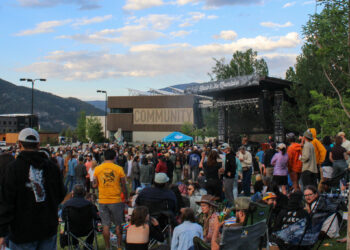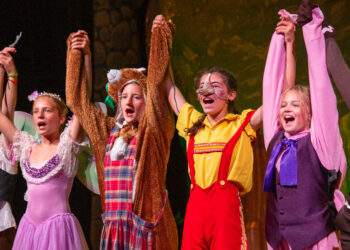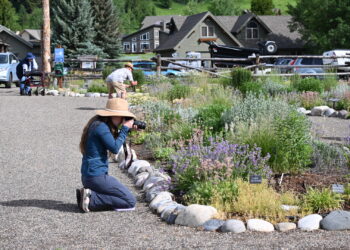
By Scott Mechura EBS Food Columnist
As we have abruptly squashed summer in the way only Big Sky can do, it occurred to me that I’ve wanted to write about a certain topic for the past couple of months.
While other things that get associated with being American can easily be debunked, such as fireworks, hot dogs and apple pie, in a recent debate with a friend he insisted that at least barbecue was “dude, totally ‘merican.” I hated to break it to him, but not even close.
The act of cooking medium to large pieces of meat, historically pig, lamb and goat, low and slow using indirect heat from a fire or green wood that would not catch fire but rather smolder, was brought to us by European explorers Christopher Columbus and Hernando de Soto.
Later, the British of all people, brought modern barbecue as we know it to the New World. And many of them settled along the eastern seaboard and in the south, bringing barbecue pork, now a staple of southern food and culture.
Some use wood, while others use charcoal or briquettes, but either are acceptable. It was E.G. Kingsford and his cousin-in-law Henry Ford that built the first charcoal briquette plant when they realized it could be an outlet for all the wood scrap from the automobile running boards.
Barbecue purists argue that true barbecue is only pork, but I bet several million Texans—where beef brisket is king—would argue otherwise.
The United States has about 20 regions we refer to as belts. Some are more well known, like the Sun Belt, Bible Belt, Banana Belt and Rust Belt, while others are less known, like the Unchurched Belt and the Jell-O Belt.
But there’s another one we seldom talk about. It’s the Barbecue Belt, which loosely stretches from the Carolinas to west Texas and as far north as Missouri.
So, does barbecue really make us smarter? Well, maybe at first.
There is evidence of a clear historical break where early man learned the act of cooking meat low and slow.
There is a direct link between the time when man began to cook meat low and slow and the period when man was getting smarter exponentially.
Scientists believe that initially man charred meat quickly over high heat and flame, leaving the outside hard to digest, but the interior still raw. Both textures were hard to digest and took a lot of the body’s energy. But slow-cooked meat was much easier to digest, and with its arrival on the culinary scene, the body’s energy could be directed to brain development. And more time spent cooking meant more time socializing, which early man also began to do.
Today, the ritual of a social gathering in which family, friends or peers congregate around a smoker or any other barbecue apparatus, debating and learning from each other, is maintained by Americans more so than most other cultures. It is part of our culinary, racial and social cultures likely more so than any other.
As a friend from the South once told me, “just go in to any barbecue establishment and look around. It is one of the most diverse groups you’ll ever see. All enjoying the same thing, and talking about it.”
Scott Mechura has spent a life in the hospitality industry. He is a former certified beer judge and currently the Executive Chef at Buck’s T-4 Lodge in Big Sky














